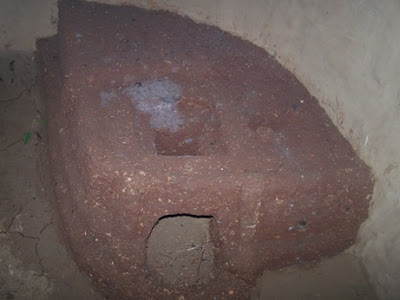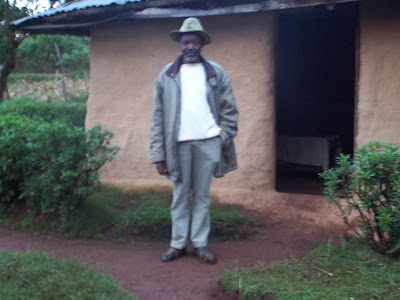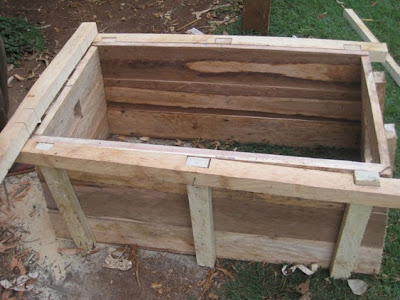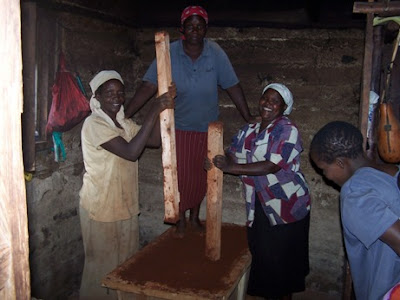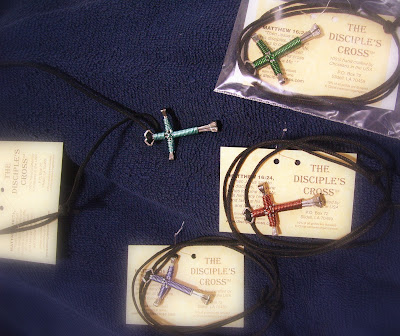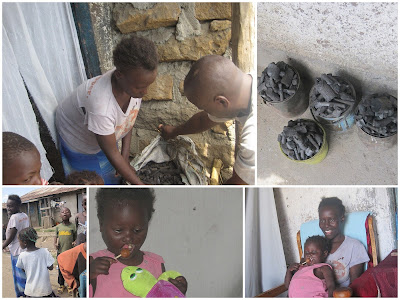It was sad news that greeted me this morning.
A friend in Kenya informed me that Kenyan Nobel Peace Prize Winner, Wangari Maathai has died after battling cancer.
This was sad news indeed. Sad because the world and the country of Kenya have lost a courageous woman of vision. I'm thankful that she left this world a little better place and I hope someone is there to continue on her important work and that others would make it grow. I'm happy too that she is now out of pain.
Wangari Maathai was the first woman from Africa to ever win the Nobel Peace Prize. What I loved about her was she founded a movement in Kenya to plant trees so that women and girls could get the timber they needed for making fires. This resonated well with me because of my interest in providing jiko stoves for the women and girls in Kenya. (You can read more here about jiko stove project).
The story of this brave woman reminds me of the power and influence that one person can make. Remember, you too can make a difference wherever you are. Each of us can make a difference.
After you read the basic story of her environmental activism (below), you can
learn more here about how this remarkable woman's life and actions epitomized this well known quotation,
All that is needed for evil to prevail is for good men (women) to do nothing.
Story and photo from CNN, Inside Africa
Kenyan Nobel laureate Maathai dies
From David McKenzie, CNN
September 26, 2011 -- Updated 1730 GMT (0130 HKT)
Nairobi, Kenya (CNN) -- Kenyan Wangari Maathai, the
first woman from Africa to win the Nobel Peace Prize, died Monday after a
battle with cancer. She was 71.
"It is with great sadness that the Green Belt Movement announces the
passing of its founder and chair, Prof. Wangari Muta Maathai, after a
long illness bravely borne," her organization said.
Maathai, an environmentalist, had long campaigned for human rights and the empowerment of Africa's most impoverished people.
More than 30 years ago she founded the Green Belt Movement, a
tree-planting campaign to simultaneously mitigate deforestation and to
give locals, especially women and girls, access to resources like
firewood for cooking and clean water. They have since planted more than
40 million trees.
In 2004, she was awarded the Nobel Peace Prize for her efforts to
promote sustainable development, democracy and peace. She was the first
woman from the continent to win the prize.
"Her departure is untimely and a very great loss to all of us who knew
her—as a mother, relative, co-worker, colleague, role model, and
heroine—or those who admired her determination to make the world a
peaceful, healthy, and better place for all of us," said Karanja
Njoroge, executive director of the Green Belt Movement.
Born in Nyeri, Kenya, on April 1, 1940, Maathai blazed many trails in her life.
She was the first woman in East and Central Africa to earn a
doctorate degree. In December 2002, she was elected to Kenya's
parliament with an overwhelming 98% of the vote.
She was honored by Time magazine in 2005 as one of 100 most
influential people in the world. And Forbes listed her as one of 100
most powerful women in the world.
In April 2006, France bestowed its highest honor on her: the Legion d'Honneur.
Kenyan President Mwai Kibaki called Maathai a "global icon who has
left an indelible mark in the world of environmental conservation."
Maathai leaves behind three children and a granddaughter.
